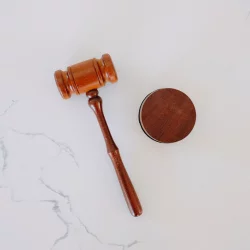Fighting a DWI Charge: What Are Your Options?
Facing a DWI (Driving While Intoxicated) charge in New York is a serious matter that can have lasting consequences. A conviction can impact your driving privileges, create a permanent criminal record, and even jeopardize your employment. However, while a DWI charge may feel overwhelming, numerous legal defenses are available. Understanding your options can help you make informed decisions, potentially reducing or dismissing the charges against you.
Understanding DWI Charges and Penalties
What Is a DWI?
In New York, a DWI occurs when someone operates a motor vehicle with a blood alcohol concentration (BAC) of 0.08% or higher. For commercial drivers, the threshold is even lower at 0.04%, and for drivers under 21, any detectable alcohol level can lead to charges under the state’s zero-tolerance laws.
Common Penalties for DWI
A DWI conviction can lead to severe penalties, such as:
- Fines range from $500 to $10,000, depending on the offense level.
- Jail time, which increases with repeat offenses.
- License suspension for at least six months for a first offense and up to one year or more for subsequent violations.
- Increased insurance premiums, potentially doubling or tripling your rates.
The Importance of Acting Quickly
After a DWI arrest, immediate action is crucial. In New York, your driver’s license can be suspended at arraignment unless you request a hearing to contest the suspension. Promptly consulting with an attorney can help you navigate these initial stages and protect your rights.
Common Defenses to DWI Charges
Illegal Traffic Stop
Law enforcement officers must have probable cause to stop your vehicle. The stop may be deemed unlawful if the officer cannot demonstrate a legitimate reason, such as observing erratic driving. Evidence obtained from an illegal stop could be suppressed, potentially leading to a dismissal of charges.
Improper Field Sobriety Test Administration
Field sobriety tests, such as the walk-and-turn or one-leg stand, must adhere to strict standardized guidelines. If an officer deviates from these protocols or administers the test improperly, the results may be unreliable and subject to challenge.
Inaccurate Breathalyzer or Blood Test Results
Breathalyzers and blood tests are not infallible. Equipment malfunctions, improper calibration, or even medical conditions like acid reflux or diabetes can skew results. Challenging the accuracy of these tests can weaken the prosecution’s case against you.
Challenging Evidence and Testing Procedures
Questioning BAC Test Reliability
BAC tests are often central to a DWI case, but their results are not always definitive. Errors such as improper maintenance of testing devices, violations of testing protocols, or mishandling of blood samples can compromise the accuracy of the results. A skilled attorney can scrutinize these factors to challenge the evidence.
Police Report and Officer Testimony
Inconsistencies in the police report or errors in the officer’s observations can work in your favor. For example, signs of impairment like slurred speech or unsteady balance might be caused by fatigue, a medical condition, or even anxiety rather than alcohol.
Reviewing Video Evidence
Many officers use in-car cameras or body cameras, which can provide critical insights into the stop and arrest process. This footage can help determine whether the officer followed proper procedures or if the field sobriety tests were administered fairly.
Mitigating Factors That May Reduce Penalties
First-Time Offender Status
If this is your first DWI offense, the court may show leniency. Options like reduced charges, probation, or participation in a DWI diversion program may be available, allowing you to avoid more severe penalties.
Demonstrating Compliance
Voluntarily enrolling in an alcohol education program, attending rehab, or completing community service can reflect positively on your case. These steps demonstrate accountability and may lead to reduced penalties.
Presence of Witnesses
If passengers or other witnesses can provide testimony contesting the officer’s observations or supporting your account of events, their input could strengthen your defense.
The Importance of Legal Representation
Guidance Through Legal Complexities
DWI cases involve intricate legal and procedural requirements. A knowledgeable attorney can guide you through these complexities, ensuring your rights are protected at every stage.
Negotiating Plea Deals
An experienced DWI attorney can negotiate with prosecutors to reduce charges, especially for first-time offenders. Plea deals might involve reduced fines, shorter license suspensions, or avoiding jail time altogether.
Assessing Dismissal Opportunities
Attorneys are trained to identify procedural errors, such as improper testing or unlawful stops, that could result in case dismissal. Their experience can significantly impact the outcome of your case.
Navigating a DWI Charge: Your Path to a Better Outcome
Facing a DWI charge in New York is undoubtedly challenging, but understanding your defense options is critical to achieving a favorable outcome. You may reduce penalties or even have charges dismissed by exploring common defenses, challenging evidence, and highlighting mitigating factors. Consulting with a skilled DWI attorney is the best way to tailor a defense strategy to your unique circumstances. With the right approach, you can move forward with confidence and work toward resolving your case effectively.
More to Read:
Previous Posts:



